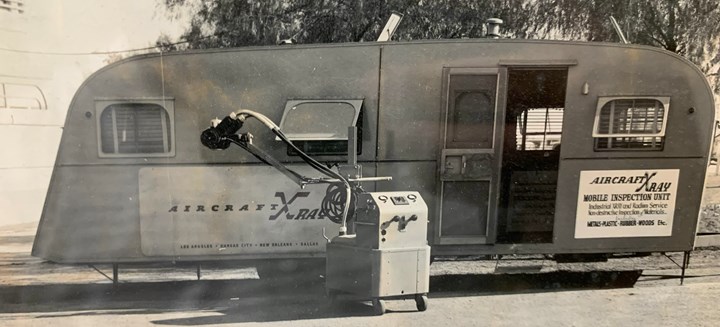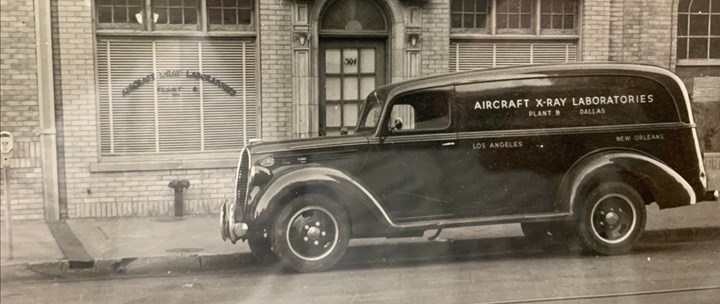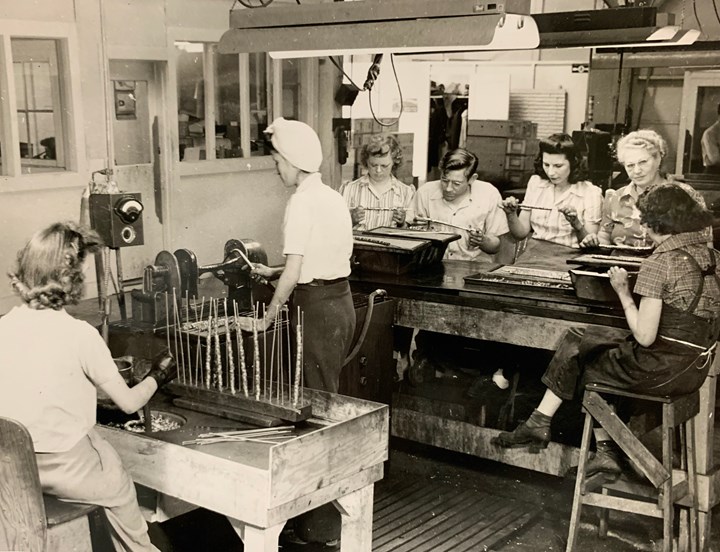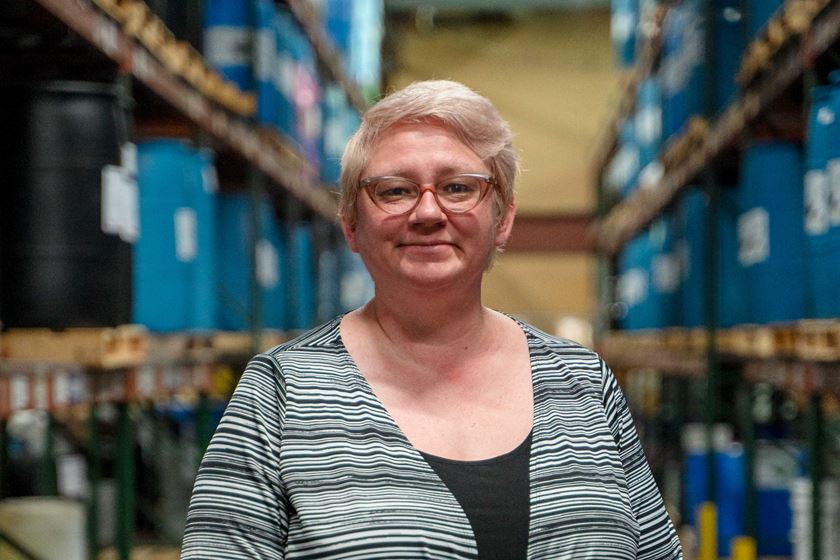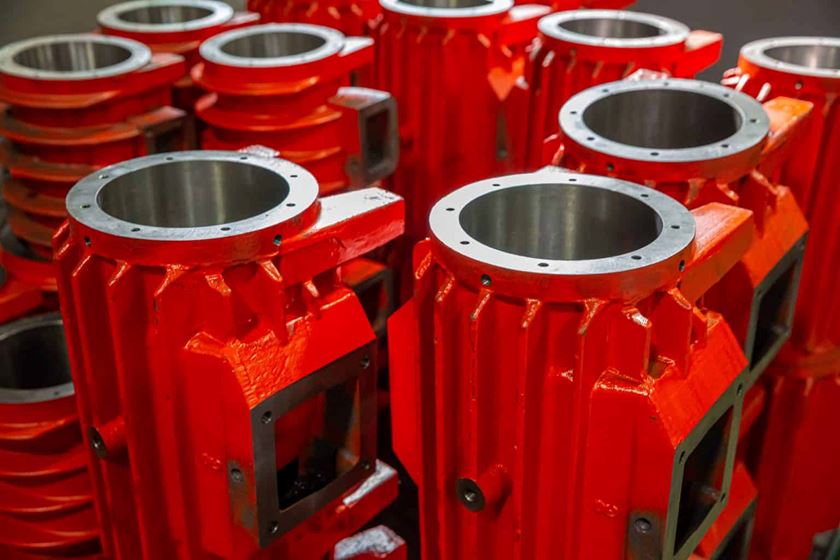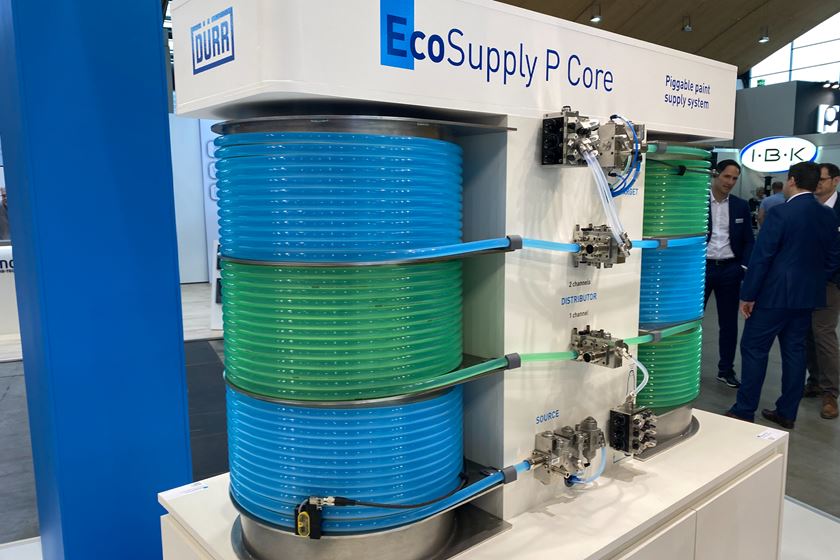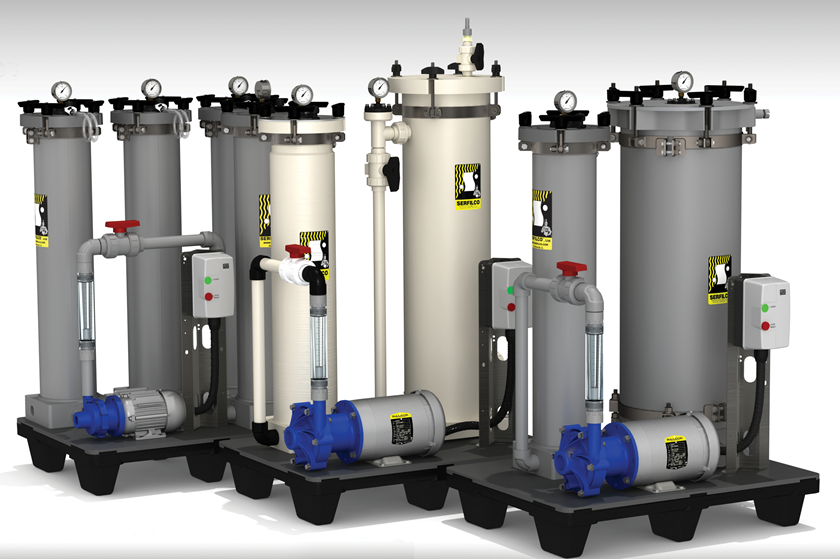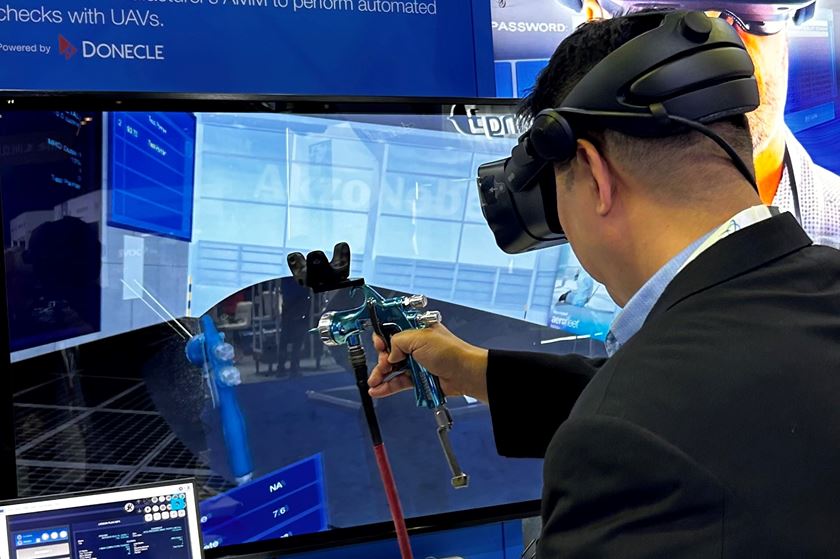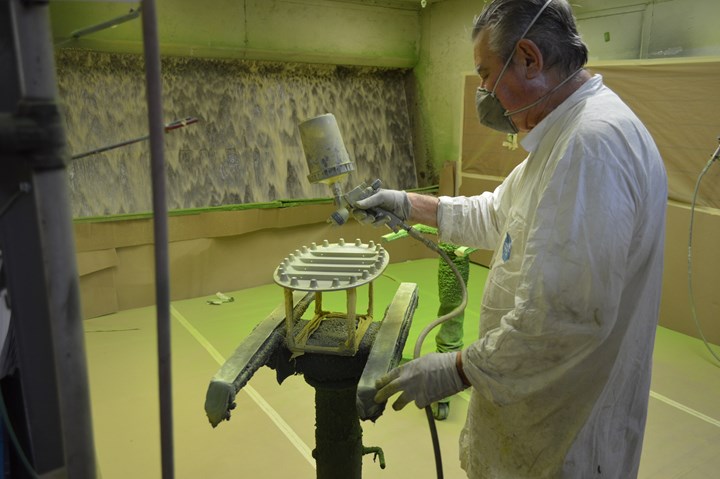
AXL has approvals from companies such as Bell Helicopter, Boeing, Cessna, Aerojet, Gulfstream, Fairchild, Hawker Beechcraft, Lockheed Martin, Moog and Northrop Grumman.
Starting out more than 35 years ago on the loading docks and driving a forklift at Aircraft X-Ray Laboratories, Justin Guzman has seen firsthand how almost every facet of the finishing industry was run, albeit the good, the bad and the ugly.
That was back in 1985 and over the next three decades Guzman worked his way up the ladder at the Huntington Park, California, metal finisher, located near Los Angeles. He held almost every position at the facility, including plant operations manager for many years, before ascending to become president of the company in 2018.
Featured Content
“Name it and I’ve done it,” Guzman says. “It’s helped me truly relate to everyone who works here, because I’ve been in their shoes and probably done that job, too. It was very good experience for me.”
Since his promotion to lead the company, Guzman has made many significant changes to Aircraft X-Ray Laboratories (AXL), many of which have propelled the shop into becoming one of the premier facilities in the U.S. and earning it a Products Finishing Top Shops award from the annual benchmarking survey.
With approvals from companies such as Bell Helicopter, Boeing, Cessna, Aerojet, Gulfstream, Fairchild, Hawker Beechcraft, Lockheed Martin, Moog and Northrop Grumman, AXL needed to keep its edge in an ever-competitive regional finishing market.
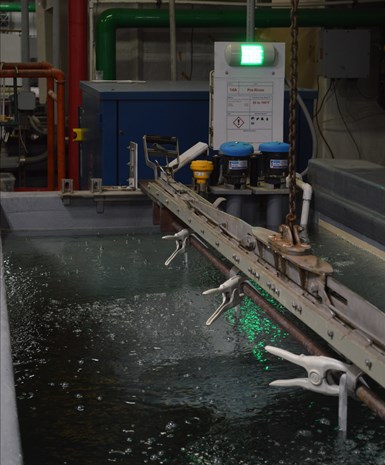
AXL partnered with finishing technology specialists TrueLogic and BeyondRelations to help integrate the shop’s data collection systems into a collaborative effort to improve efficiency and increase productivity.
“The changes that Justin has put into place have just been fantastic,” says Gary Newton, the CEO of the company and whose father, George, founded the shop in 1938. “Justin had a lot of great ideas and initiatives that weren’t getting heard and acted on, so it was important to make him the leader of the team and get those changes put into place.”
Pioneering Inspection and Surface Treatments
AXL made its name in the early days of the Southern California metal finishing industry by pioneering the concept of offering a full range of inspection and surface treatments at one location, thereby reducing transportation costs and assuring delivery dates.
It was George Newton who initiated many of the inspection methods the industry now uses every day, such as chemical conversion coating, painting, anodizing, etching and surface treatments. While working with the Douglas Company as a purchasing agent, Newton identified a need for the inspection of castings before the machining process, believing that he could X-ray castings and eliminate the bad parts prior to incurring the expense and spending the time allotted in the final machining process.
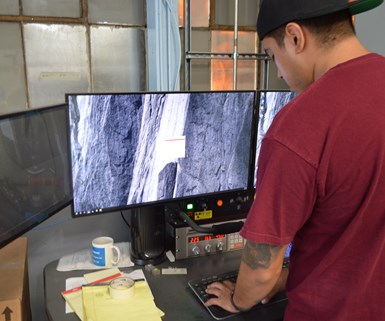
AXL made its name in the early days of the Southern California metal finishing industry by pioneering the concept of offering a full range of inspection and surface treatments at one location, thereby reducing transportation costs and assuring delivery dates.
During World War II, Newtown expanded AXL to multiple locations across the U.S., opening additional X-ray plants in Wichita, Kansas; New Orleans; and Dallas and Fort Worth, Texas. He also opened two magnetic particle inspection plants in Los Angeles county for the growing aerospace market in California.
Fast forward to 2018 and current owner Gary Newton felt he needed a change at the top to keep AXL in competition with other regional aerospace metal finishing operations. That meant promoting Guzman from plant manager to president.
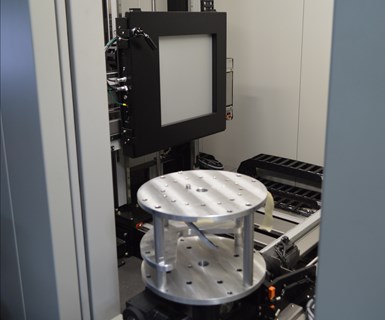
AXL has spent over $1 million on x-ray equipment in the past year.
“I’m finding out that the metal finishing industry is a bit of a dinosaur,” Guzman says. “It was always, ‘We’re doing the job, we’re making money, so let’s leave it alone.’ For example, people would leave or retire and take a lot of knowledge with them and that needed to change. One of the things we are looking to do is divorce the operator from that control and make it more so that our system controls everything, no matter who is here. We control the secret recipe, we control every nuance.”
Integrating Data Collection Systems
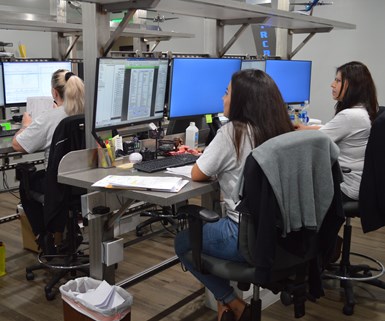
Guzman says the biggest impact is in the planning department with improved turnaround, greater confidence and consistency. Items such as contract review are now a real part of the process, as Workflo will not allow them to plan a part for a specification of which they are not approved.
To get to that level of control, AXL partnered with finishing technology specialists TrueLogic and BeyondRelations to help integrate the shop’s data collection systems into a collaborative effort to improve efficiency and increase productivity.
Guzman says the implementation of TrueLogic’s TrueChem system has significantly improved efficiency in many areas, particularly standardization and traceability. By organizing procedures, documents, formulas and data in its user-friendly and controlled single repository, the software greatly helps in daily operations, preparing for audits, and improving audit results and customer reviews as the data is turned into useful information, which is easily viewed and understood.
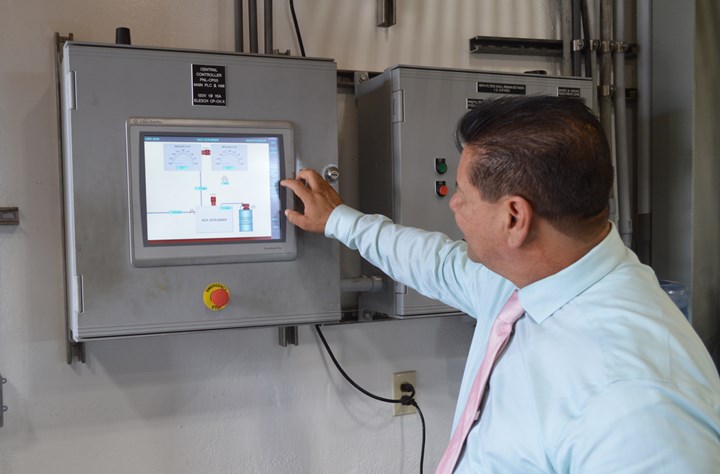
Justin Guzman works a computer terminal, where real-time operator guidance, data collection and documentation has removed burdens on the operators.
Matt Akin, TrueLogic’s president, says one of the many benefits of TrueChem is how the AXL team is empowered with a proactive approach to managing the processes the way Guzman wants. Whether it’s based on historical experience or engineering standards, Akin says an unlimited number of TrueChem rules and real-time data analysis can be utilized to automatically look for discrete events or trends.
“The program will then alert AXL team members about the situation and recommend courses of action, and this enables them to act before a problem occurs,” Akin says. TrueChem continually watches for events and trends with every new data point recorded with every shift, every day.
Guzman says this monitoring has provided AXL management, staff and customers with confidence that the data is being analyzed and acted upon proactively, instead of reactively.
“That results in greatly increased first-pass yields, reduced rework, scrap and recalls,” Guzman says. “All of which contribute to significantly improved margins.”
Improved Turnaround, Greater Confidence and Consistency
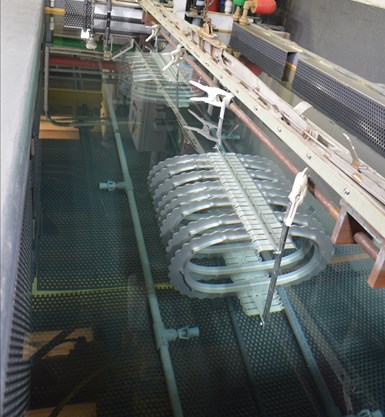
Guzman says the high-tech automation upgrade was a necessity and now Workflo provides the means to incorporate its experience and success into its business processes.
BeyondRelations implemented its Workflo/Worx software at AXL to provide improvements in planning and tracking the work through the shop. Guzman says the biggest impact is in the planning department with improved turnaround, greater confidence and consistency. Items such as contract review are now a real part of the process, as Workflo will not allow them to plan a part for a specification of which they are not approved.
AXL worked with Scott Peterson, president of BeyondRelations, to develop and implement Workflo/Worx for real-time operator guidance, data collection and documentation that removes burdens and time from the operator as Guzman wanted. Peterson says the system’s Automation Assist feature takes the mind of the operator off the clock, making room for the parts that are being processed.
“Rinses that should take 1-2 minutes are no longer done in 10 seconds or 10 minutes,” Peterson says. “The pencil whipping exercise of signing the paperwork has been replaced by automatic documentation. There is no question of how long the parts were in the tank.”
Guzman says the high-tech automation upgrade was a necessity, and now Workflo provides the means to incorporate its experience and success into its business processes. It reduces AXL’s supervisory oversight, eliminates opportunities for human error and reduces the blame, shame and frustration of repeating mistakes.
“We now have empirical proof of how the parts are processed, automatically,” Guzman says. “This removes suspicion and frustration between quality and production, and improves trust between us and our customer.”
In addition to bringing the latest in process automation to AXL, Guzman is also seriously concerned with environmental issues facing California plating operators, as well as reducing costs where he can. AXL recently partnered with Miles Chemical and Liddell Engineering to improve the shop’s waste treatment facility by reducing the cake they were hauling to the landfill by over 80%. Its supplier, Miles Chemical, worked with AXL on the project, even though it dramatically reduced the chemistry it needed to purchase from them.
“We thought we understood how to run our waste treatment facility, but we were wrong,” Guzman says. “Going it alone, we did not realize how much technology had changed and what could be done through those advances. But working with great suppliers, we got to where we needed to be.”
Visit aircraftxray.com, truelogiccompany.com, getworkflo.com, mileschemical.com and liddelleng.com.
RELATED CONTENT
-
Gold and Silver Plating Basics
An overview of precious metal electroplating processes.
-
Plating Q&A: Can you color stainless steel?
Our expert, Art Kushner, says yes, you can color stainless steel, but it is not a process that is typically performed in a plating shop. Read more about his answer.
-
Masking for Surface Finishing
Masking is employed in most any metal finishing operation where only a specifically defined area of the surface of a part must be exposed to a process. Conversely, masking may be employed on a surface where treatment is either not required or must be avoided. This article covers the many aspects of masking for metal finishing, including applications, methods and the various types of masking employed.






